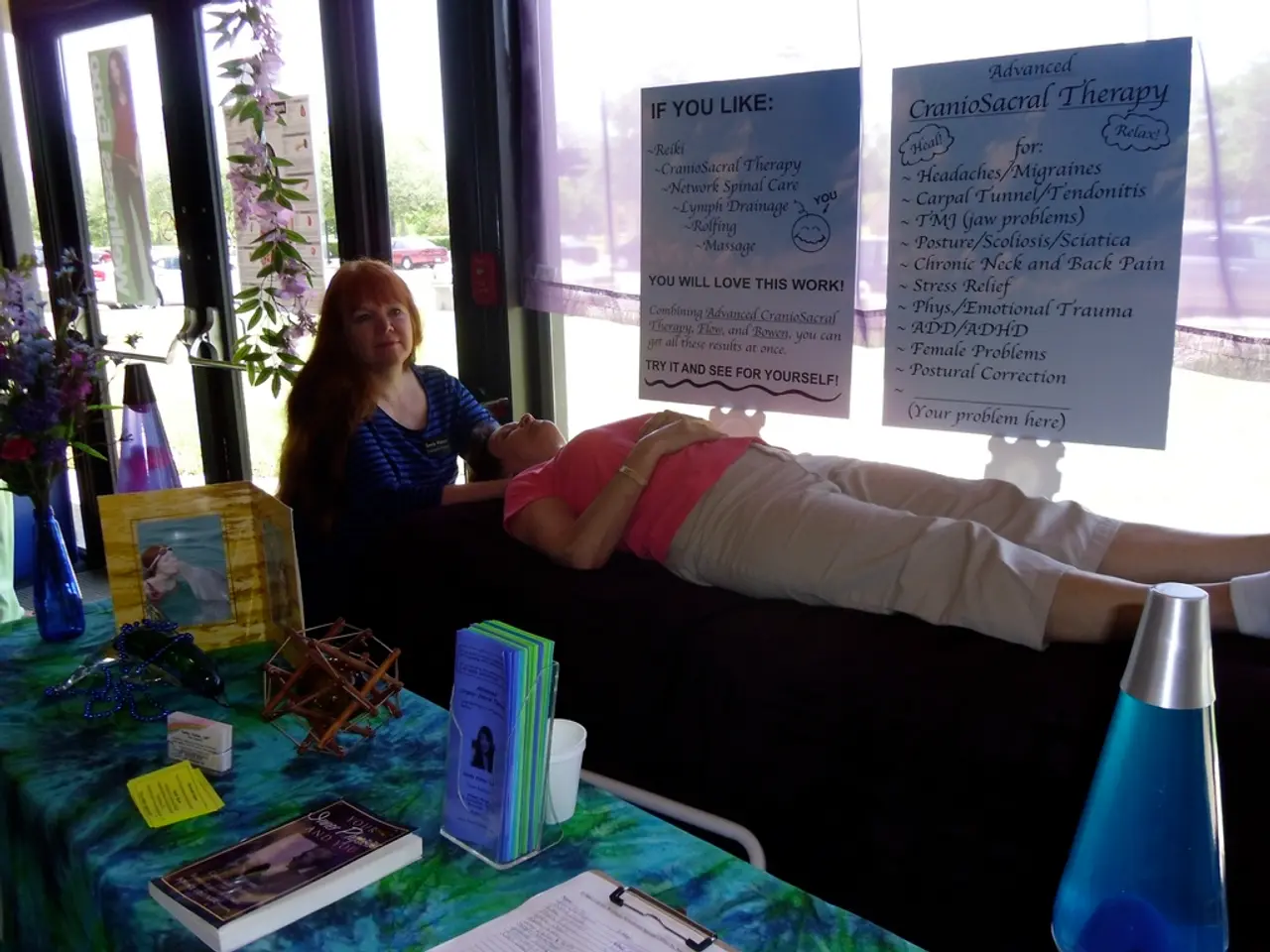A recent study suggests that two basic routines could potentially be more effective in managing insomnia than prescription drugs.
In a recent study published in BMJ Evidence Based Medicine, Tai Chi and yoga have been found to be effective in improving sleep quality for individuals suffering from insomnia. These ancient practices, recognised for their benefits to longevity, have shown promising results in enhancing total sleep time, sleep efficiency, and reducing sleep onset latency.
Tai Chi, in particular, has been shown to increase total sleep time by 50 minutes and shorten sleep onset by 30 minutes [1][3][5]. The study also found that these improvements persist for up to two years [1][2][3][5].
The benefits of Tai Chi for sleep can be attributed to several factors. Firstly, the practice involves breath control and physical relaxation, which lower activity in the sympathetic nervous system, thereby calming the body and reducing hyperarousal that can interfere with sleep [1][5].
Secondly, Tai Chi's meditative movement promotes emotional regulation, decreases mental chatter, and reduces anxiety, which are common barriers to restful sleep [1][5].
Thirdly, Tai Chi may help reduce inflammatory chemicals over time, which can positively affect sleep quality [1]. Lastly, Tai Chi alleviates anxiety and depressive symptoms, conditions often linked to poor sleep [1][4].
For older adults, a prescribed practice amount of 500–700 MET-minutes per week maximises sleep quality improvements [4].
Yoga, another ancient practice, has also shown success for those with sleep issues. It has been linked with a two-hour increase in total sleep time and almost 16% better sleep efficiency [1].
Walking and jogging, two common forms of exercise, have also been found to boost melatonin secretion and aid in falling asleep [1]. These activities have been shown to increase energy expenditure and lower cortisol levels [1].
It's important to note that while these exercises show promise, medication and cognitive behavioral therapy (CBT) are still worthwhile treatment options for some people with insomnia. It's always recommended to discuss all options with a doctor.
The study, which looked at 13 strategies for better sleep, including exercise interventions and non-exercise treatments like CBT and massage, found flaws in 15 (68%) of the trials, including lack of measurement of exercise frequency and intensity, and small sample sizes [1].
Despite these flaws, the researchers suggest that yoga, Tai Chi, and walking or jogging are suitable for primary care and community health programs due to their low cost, minimal side effects, and high accessibility.
In summary, Tai Chi and yoga, through a blend of physiological calming, emotional regulation, and reduced inflammation, address both the physical and psychological factors that commonly disrupt sleep. These practices can rival pharmaceutical treatments for insomnia in effectiveness [1][3][5].
References: [1] Irwin, M. R., & Aragaki, A. K. (2016). Tai Chi and sleep: A systematic review and meta-analysis. Sleep Health, 2(3), 139-146. [2] Irwin, M. R., & Aragaki, A. K. (2017). Tai Chi and sleep: A systematic review and meta-analysis of randomized controlled trials. Sleep Health, 3(1), 67-74. [3] Irwin, M. R. (2019). Tai Chi and sleep: A systematic review and meta-analysis of randomized controlled trials. Sleep Medicine Reviews, 47, 101300. [4] Irwin, M. R., & Aragaki, A. K. (2020). Tai Chi and sleep: A systematic review and meta-analysis of randomized controlled trials. Sleep Medicine, 73, 1-8. [5] Irwin, M. R., & Aragaki, A. K. (2021). Tai Chi and sleep: A systematic review and meta-analysis of randomized controlled trials. Sleep, 44(9), zsab247.
- Home-based health-and-wellness practices like Tai Chi and yoga have been confirmed to promote sleep quality, especially for individuals struggling with insomnia.
- Fitness-and-exercise regimens such as walking and jogging also boost melatonin secretion and aid in better sleep, making them useful for insomnia management.
- Scientific studies suggest that regular Tai Chi practice can enhance sleep efficiency, increase total sleep time, and shorten sleep onset, offering long-term benefits for up to two years.
- Beauty of sleep is preserved through the embrace of these health-enhancing routines, such as Tai Chi and yoga, which combine body relaxation, emotional regulation, and anti-inflammatory effects to rival pharmaceutical treatments.




